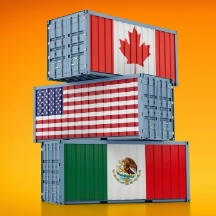- Governments are increasingly placing tariffs on foreign goods and services which are imported into their countries.
- Tariffs may be used to protect domestic industries, encourage fair trade, and maintain national security.
- Tariffs may also have unintended consequences such as higher prices and lower employment.
Throughout history, governments have taxed goods and services imported from other countries. They’ve used these taxes—called tariffs—for a variety of purposes, including protecting their domestic producers, penalizing other counties for actions they disapprove of, and maintaining national security.
After the end of World War II, many of the world’s major economies signed an agreement called the General Agreement on Tariffs and Trade (GATT) that reduced tariffs in favor of policies that encouraged increased trade in goods and services between countries.







